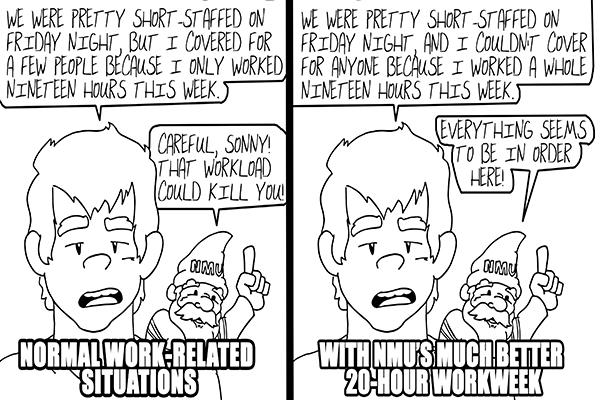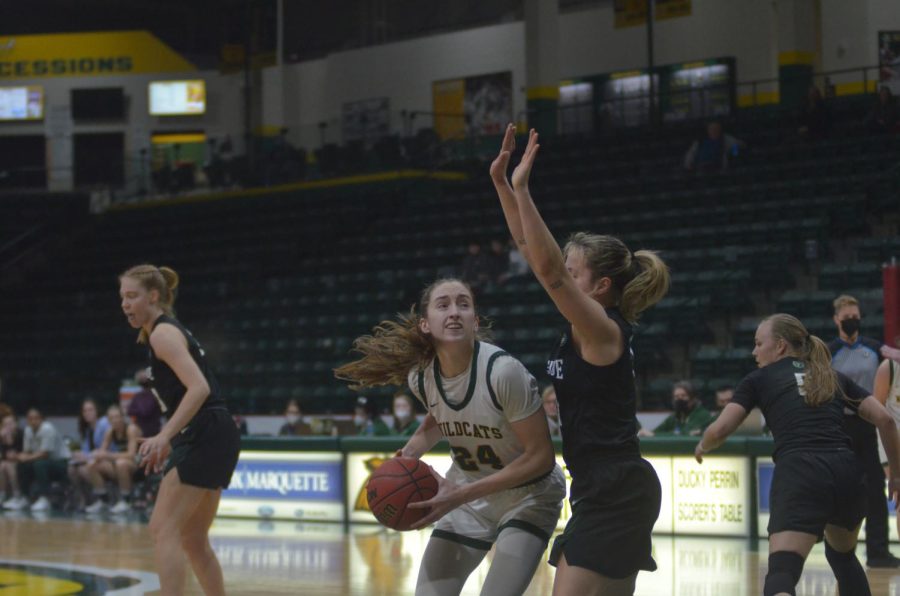
In the past, NMU has allowed students to work over the policy limit of 20 hours per week if students were given written exemption by their department head and passed this exemption by the university’s administration.
The policy, according to the Career Services Center (CSC), was first created and placed into the student employment handbook in order to prevent NMU from being to blame for overworking students and, therefore, hurting their academic scores while attending the institution.
CSC’s true fear is that students could qualify for benefits, such as health care, if they work too many hours on-campus.
However, for students who depend on income from extensive on-campus work to make tuition or rent payments, this enforcement could have damaging consequences. Take into account that the average NMU graduate leaves the university with $29,343 in student loan debt.
If academic failure is the reason for concern, then conditional employment can be the answer: students working on campus whose grades drop below a certain GPA are barred from working a university job. A simple fix for a fruitless fear.
According to NMU Human Resources, there’s a possibility that the availability of on-campus jobs will decrease if there are some students working long hours. Students who work that many hours at multiple workplaces are sometimes doing so because no one else can do their jobs. Those students might have qualifications beyond other students or their schedules work better with the employer’s expectations.
The enforcement of this rule is detrimental for students if done with no exceptions, as there are many in the NMU community who can manage both work and academics without one commitment impairing the other. According to CSC, payments to students who violate the policy may not be getting paid for the hours they work. If students cannot get hours on-campus when they need money to stay here, they will just start working off campus.
Students have to work hard to graduate in more ways than one. While grades are held in high esteem, a student’s experiences leading up to graduation are equally, if not more so, valuable for their futures.
The university should encourage students to spread their wings, not clip them to save money and face.




























